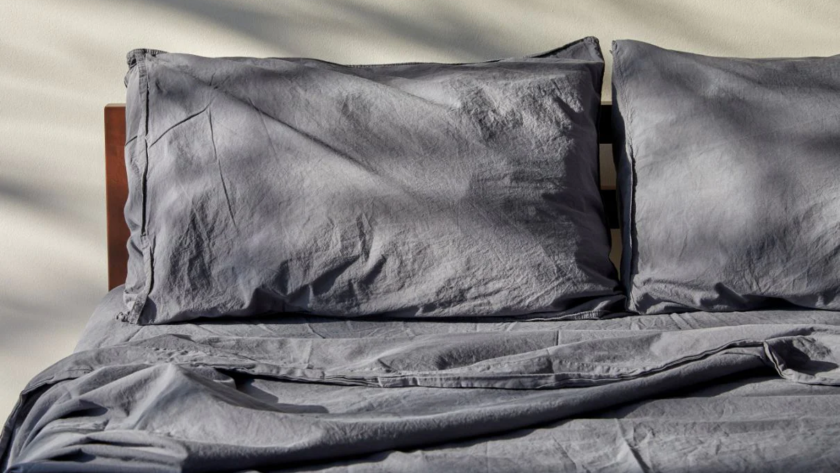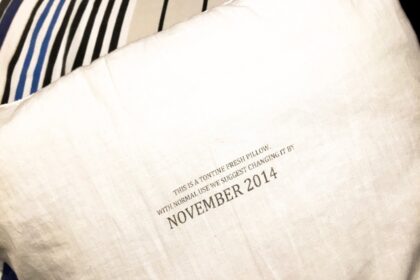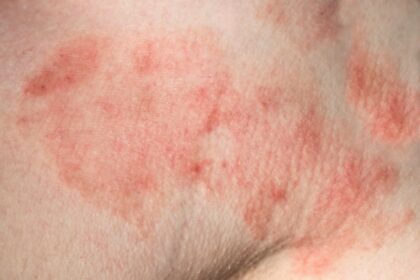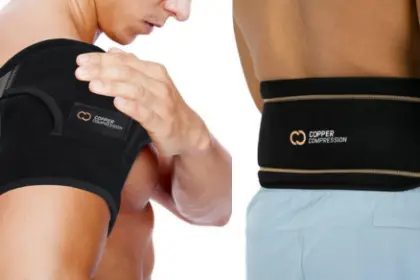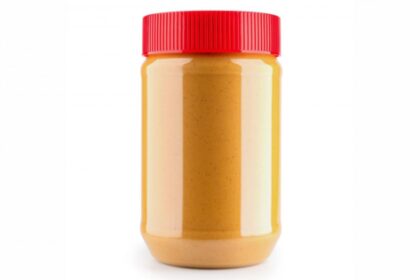In the pursuit of a restful night’s sleep, we often invest in quality mattresses and plush pillows, but how often do we consider the impact of our choice in bed sheets? The sheets we sleep on can significantly influence not only the comfort of our slumber but also our overall well-being and the health of the planet. It turns out that not all bed sheets are created equal, and some may be unwittingly contributing to environmental issues and health concerns.
In this exploration of bed sheet materials, we delve into the hidden pitfalls of conventional options, shedding light on the alarming prevalence of micro-plastics released into our environment and the potential breeding grounds for bacteria. But fear not, for there are eco-friendly alternatives that not only provide a luxurious sleeping experience but also align with a commitment to sustainability and health.
Join us on a journey through the world of bed sheets as we uncover the materials that shed micro-plastics and harbor bacteria, and discover the eco-friendly options that allow you to sleep soundly in more ways than one. It’s time to elevate your bedding choices and make a positive impact, one night of restful sleep at a time.
The Micro-Plastic Menace: Polyester and Microfiber Sheets
Polyester: A Silent Contributor to Plastic Pollution
Polyester sheets, while initially favored for their affordability and wrinkle-resistant qualities, pose a significant threat to both our environment and personal health. The shedding of micro-plastics from polyester fabrics is not only a concern for aquatic life but also for humans. As these microscopic plastic particles find their way into our water systems, they may infiltrate the very water we use for daily activities, including bathing.
What’s more, recent studies suggest that micro-plastics can penetrate the skin barrier. While the full extent of the health implications is still under investigation, the possibility of these plastic particles entering our bloodstream through our skin raises alarming questions about the long-term effects of constant exposure.
Microfiber: Softness at a Hidden Cost
Microfiber sheets, praised for their softness and affordability, share a similar dark side. The fine synthetic fibers that give microfiber its luxurious feel also contribute to the micro-plastic predicament. During each laundry cycle, these tiny plastic particles are released into the water, ultimately finding their way into ecosystems and potentially back into our bodies.
Beyond the environmental impact, the risk extends to our skin health. Microfiber sheets can create a micro-environment conducive to bacterial growth. The accumulation of dead skin cells on the sheets, coupled with the warmth and moisture retained by microfiber, can lead to clogged pores and increase the likelihood of skin infections.
Bacteria Breeding Grounds: Cotton & Its Hidden Dangers
Conventional Cotton: A Feast for Bacteria
While cotton is a natural and widely used fabric, conventionally grown cotton comes with its own set of risks. Heavy pesticide and chemical treatments during cultivation leave behind residues that can persist in the fabric. When we sleep on conventional cotton sheets, our skin comes into contact with these chemical remnants, potentially disrupting the delicate balance of our skin microbiome.
The warmth and moisture-retaining properties of cotton sheets, though comfortable, can also create an environment favorable for bacterial growth. The accumulation of dead skin cells on cotton sheets poses a dual risk — not only can it lead to clogged pores and acne but it also provides a nutrient-rich substrate for bacteria, increasing the risk of skin infections.
The Call for Change: Choosing Eco-Friendly Alternatives
In the wake of the environmental and health concerns associated with conventional bed sheet materials, a growing awareness has spurred the popularity of eco-friendly alternatives that not only offer a luxurious sleeping experience but also contribute to a sustainable future. Among these alternatives, bamboo, hemp, and Tencel stand out as top choices, offering a harmonious blend of comfort, durability, and environmental responsibility.
Bamboo Bedding: A Sustainable Dream
Bamboo sheets have emerged as a front-runner in the eco-friendly bedding revolution. Derived from the fast-growing bamboo plant, these sheets boast a host of benefits. Bamboo is naturally resistant to pests, eliminating the need for pesticides during cultivation. Additionally, bamboo requires minimal water and can thrive in diverse climates, reducing the environmental impact of water consumption associated with traditional cotton farming.
What sets bamboo sheets apart is their breathability and moisture-wicking properties, ensuring a comfortable sleep by regulating temperature. Furthermore, bamboo fabric is hypoallergenic and resistant to dust mites, making it an excellent choice for those with allergies or sensitive skin. The production process for bamboo sheets also involves fewer chemicals, contributing to a more sustainable and environmentally friendly option.
Hemp Bedding: Strong, Sustainable, and Breathable
Hemp, often associated with its industrial uses, has entered the realm of bedding as a durable and eco-friendly option. Hemp cultivation requires minimal water and pesticides, making it an inherently sustainable choice. As a fabric, hemp is known for its strength and longevity, ensuring that hemp sheets withstand the test of time.
Hemp’s breathability is a key factor in its appeal for bedding. It allows for optimal airflow, keeping the body cool in warmer temperatures and warm in colder climates. Moreover, hemp is naturally antibacterial and hypoallergenic, discouraging the growth of bacteria and allergens on the sheets.
Tencel Bedding: The Pinnacle of Sustainability
Tencel, also known as lyocell, is a fabric made from sustainably sourced wood pulp, often derived from eucalyptus trees. Tencel production involves a closed-loop process, where solvents are recycled, minimizing environmental impact. This method sets Tencel apart as a leading sustainable fabric.
Tencel sheets offer a silky smooth feel, comparable to luxury fabrics like silk, while remaining breathable and moisture-wicking. The fabric’s natural resistance to bacteria and allergens makes it an ideal choice for those seeking a hypoallergenic and health-conscious bedding option. Tencel’s eco-friendly credentials extend to its biodegradability, ensuring that, at the end of its life cycle, it leaves a minimal environmental footprint.
Making Informed Choices for a Sustainable Sleep
In the quiet moments of our bedrooms, where we seek rest and rejuvenation, the choice of bed sheets emerges as a silent influencer, shaping not just our sleep but our environmental impact. The revelations of micro-plastics and bacterial risks associated with conventional bedding prompt a reconsideration of our choices.
Enter bamboo, hemp, and Tencel—eco-friendly alternatives that blend luxury with sustainability. These choices signify more than comfort; they symbolize a commitment to well-being and the health of our planet.
Each small act—choosing bamboo over polyester or Tencel over conventional cotton—contributes to a future where our sleep supports ecosystems and generations. In these decisions, seemingly insignificant, lies the power to weave a narrative of positive change.
By embracing eco-friendly bedding, we become stewards of a conscious lifestyle, recognizing the profound link between personal health and planetary well-being. In each conscious decision, we shape a future where restful slumbers and environmental stewardship harmonize, proving that small ripples of change can burgeon into waves of impact over time.
